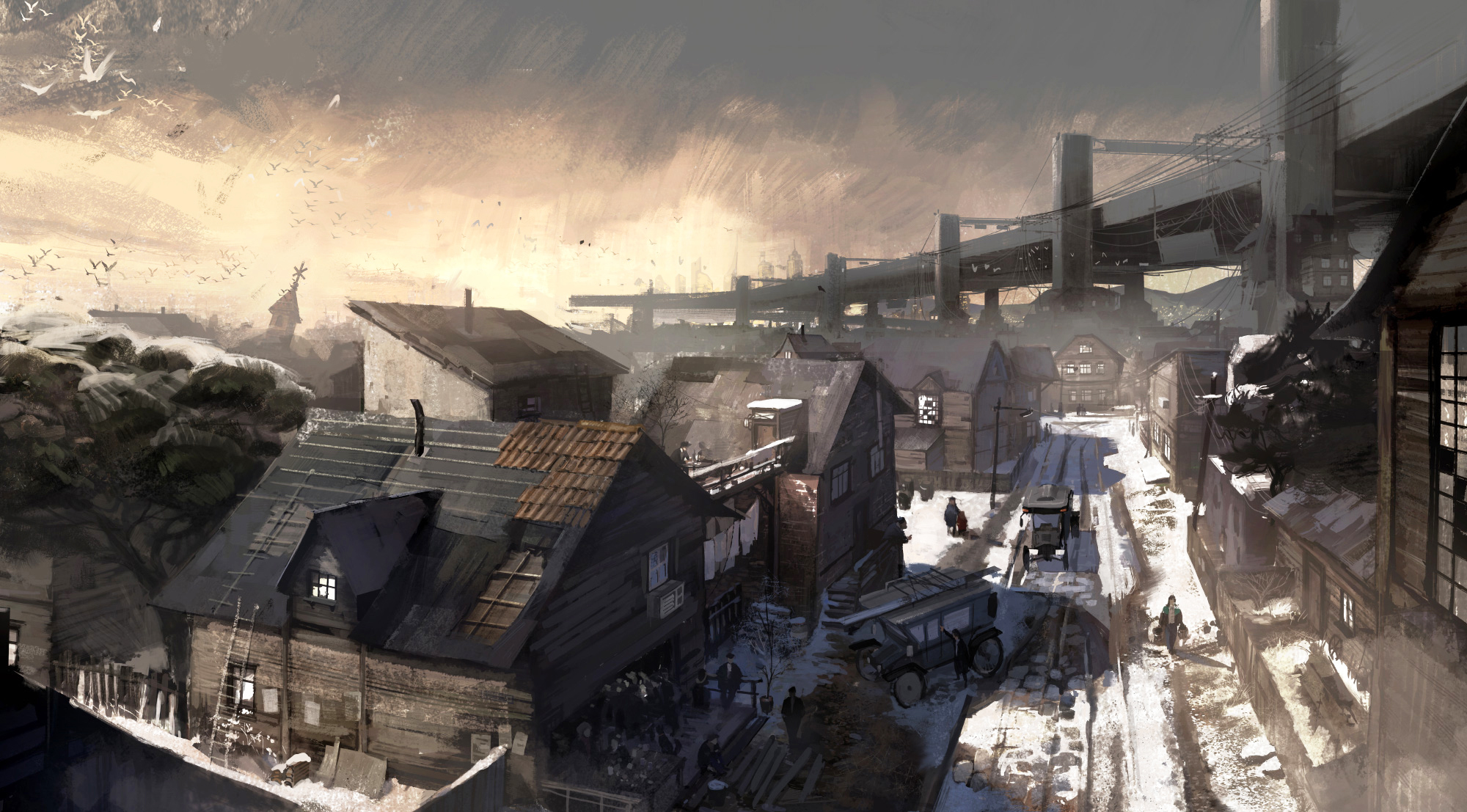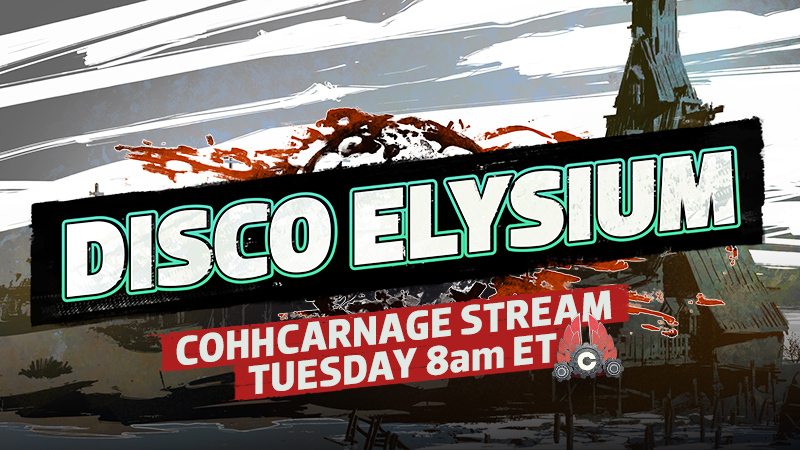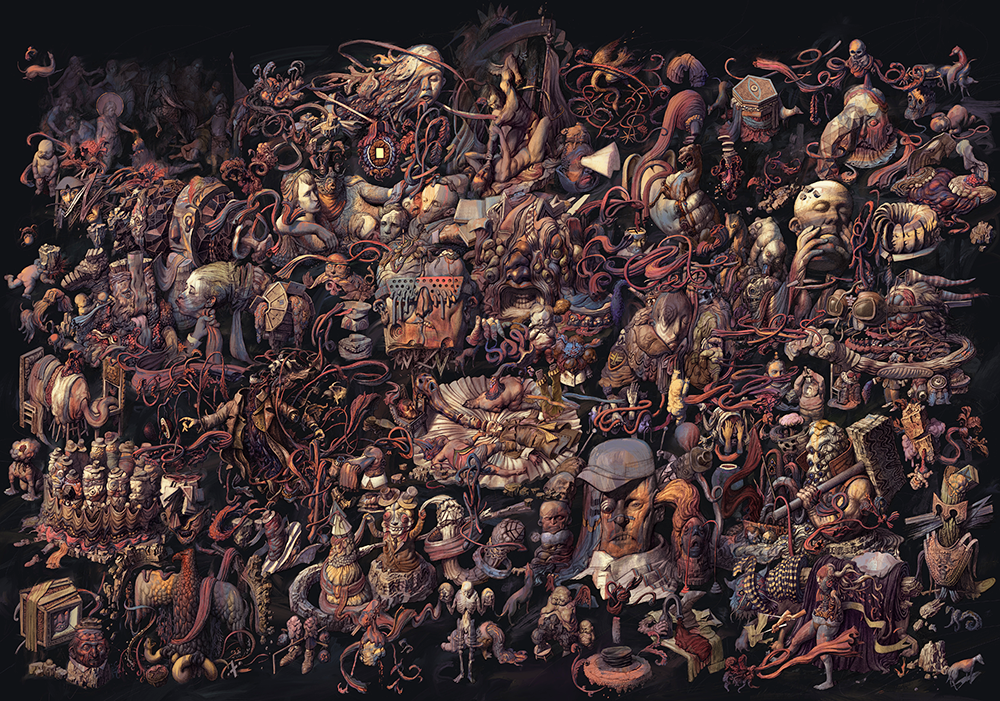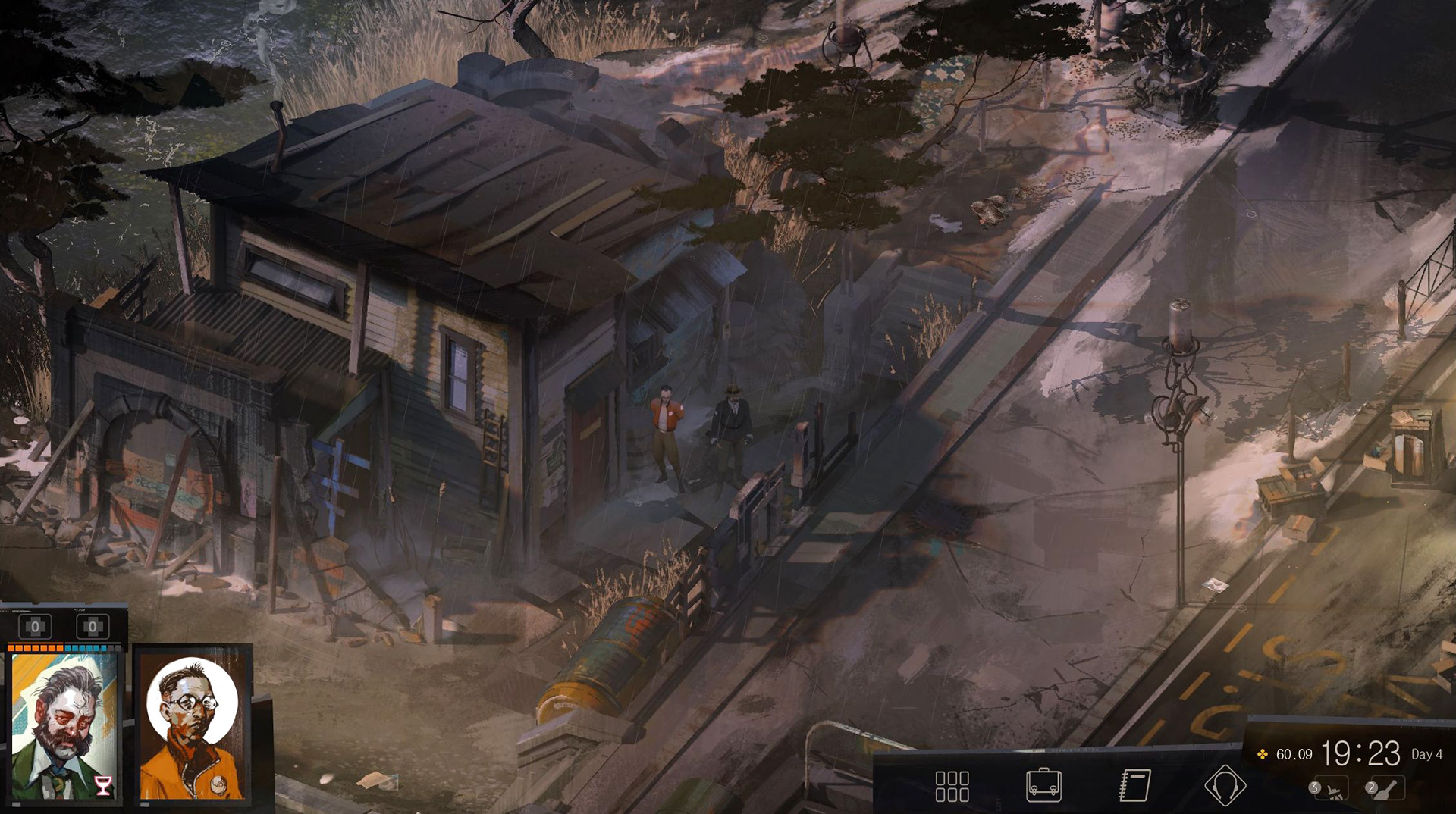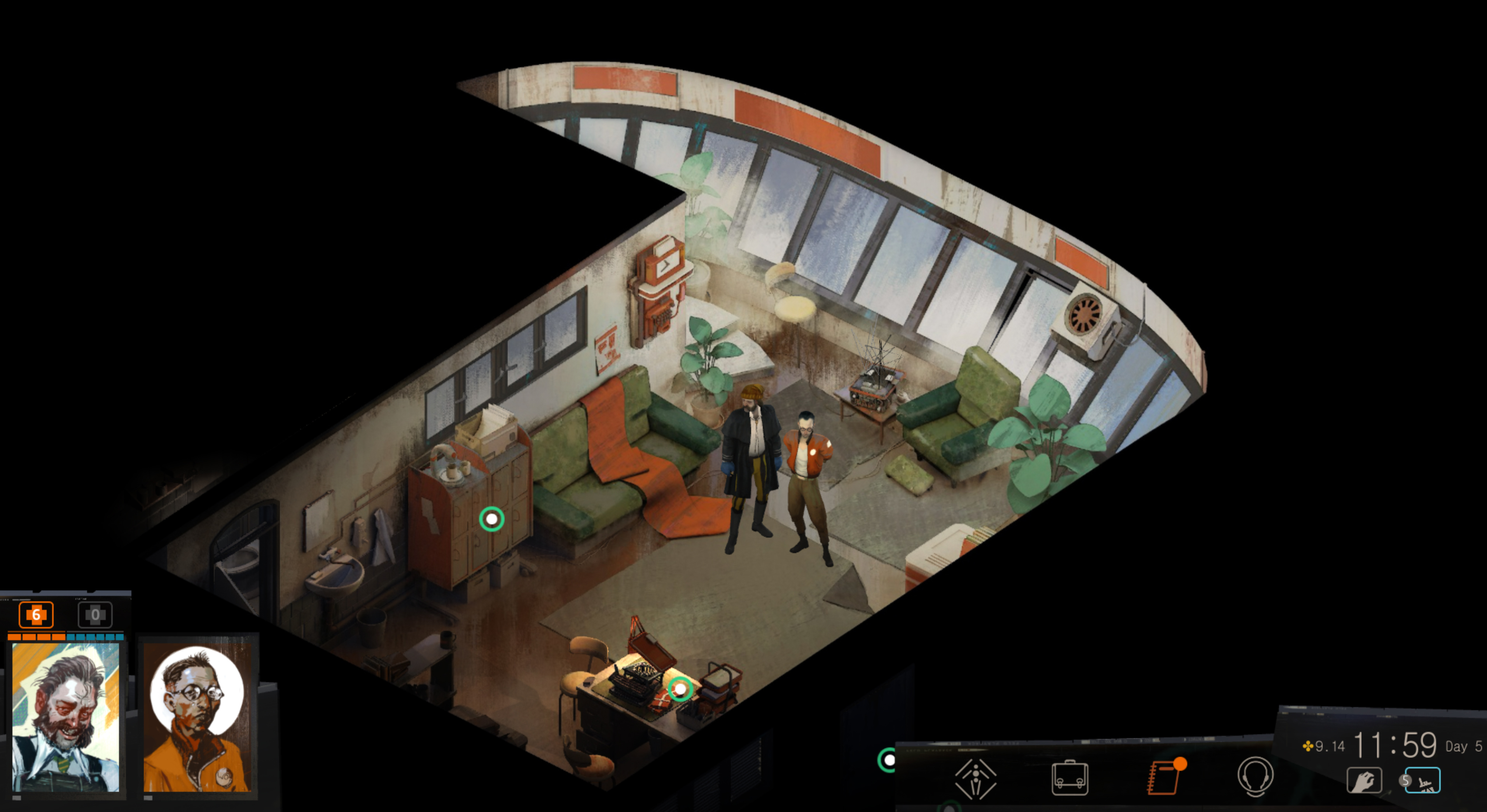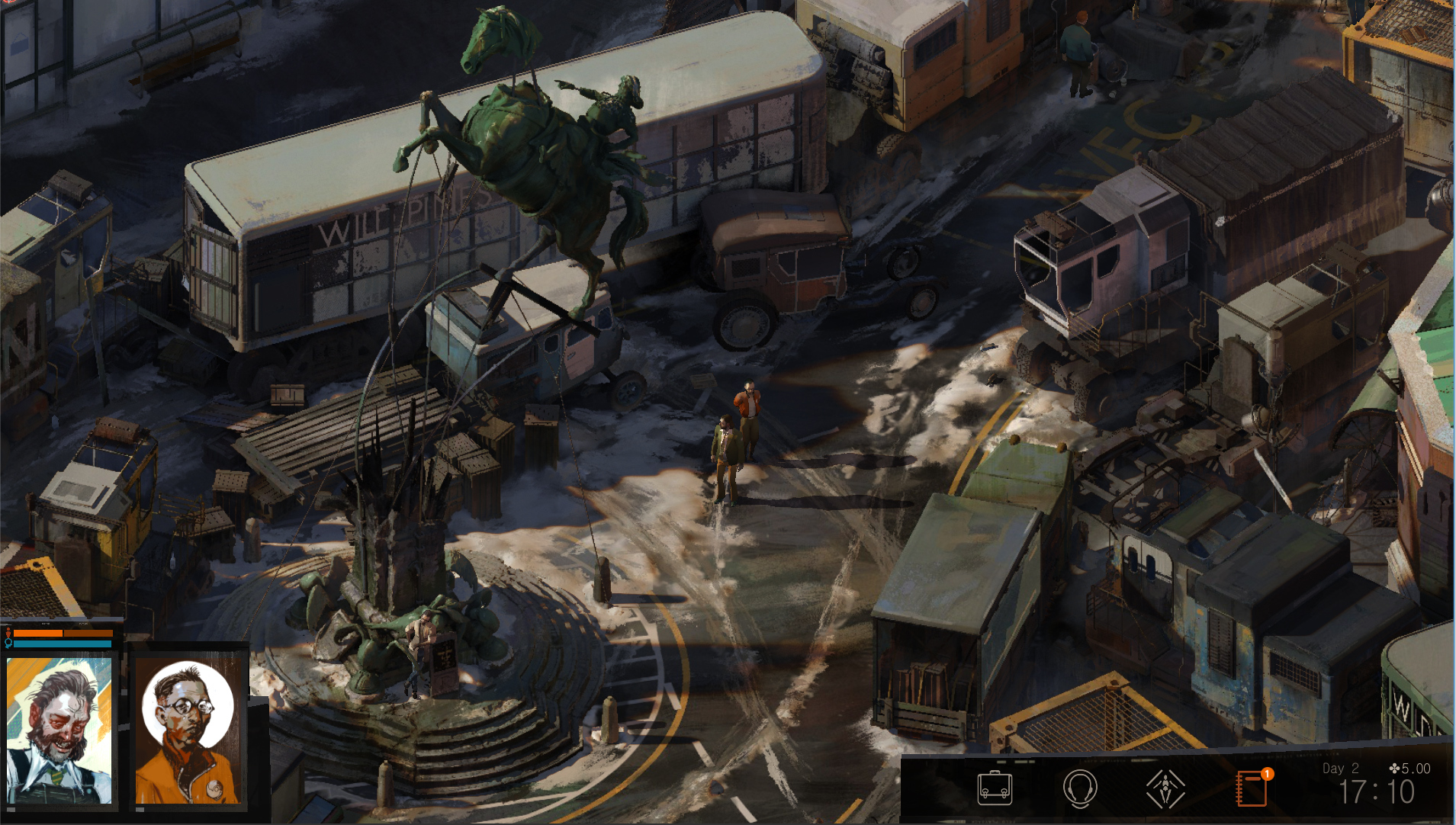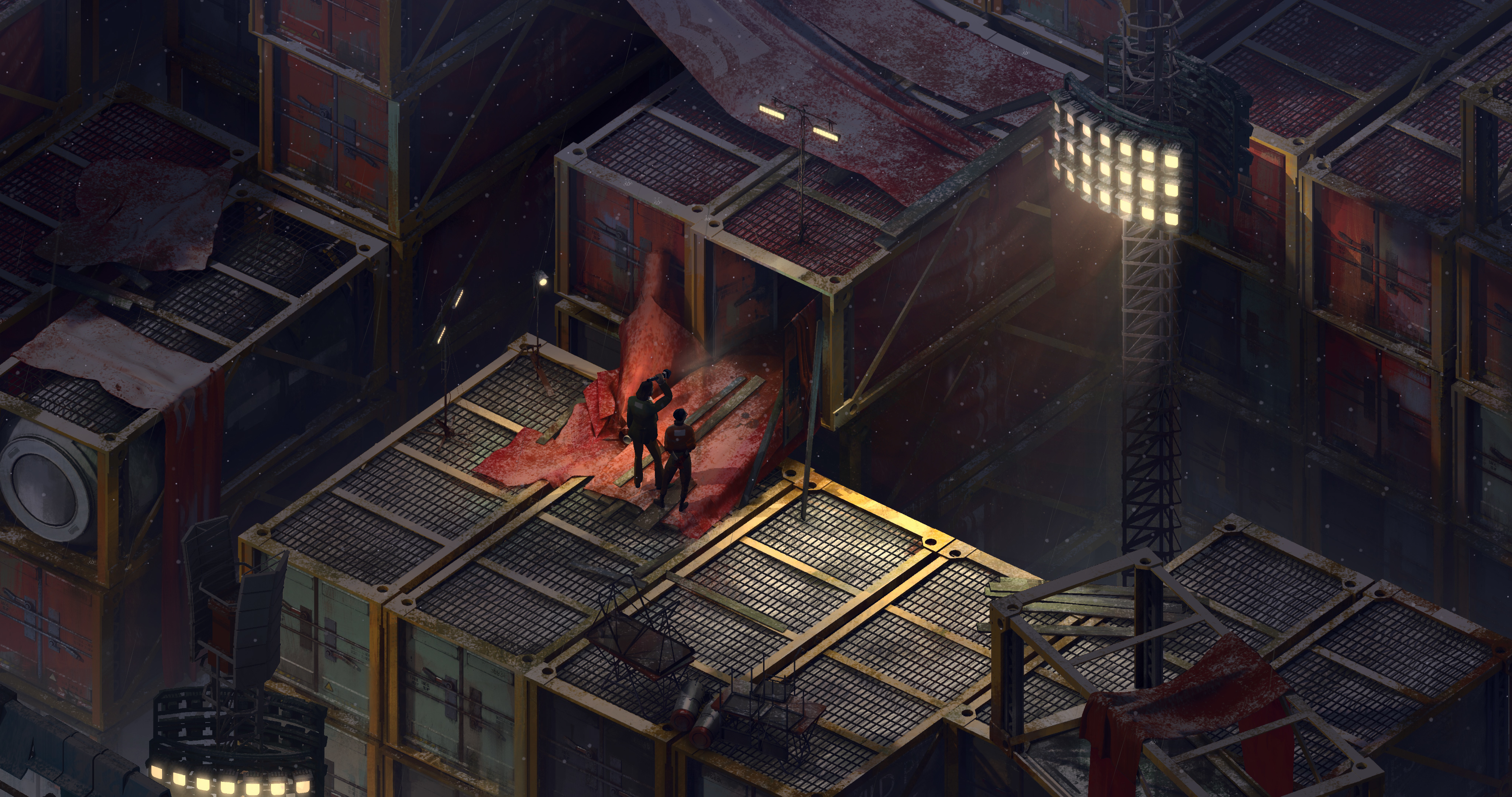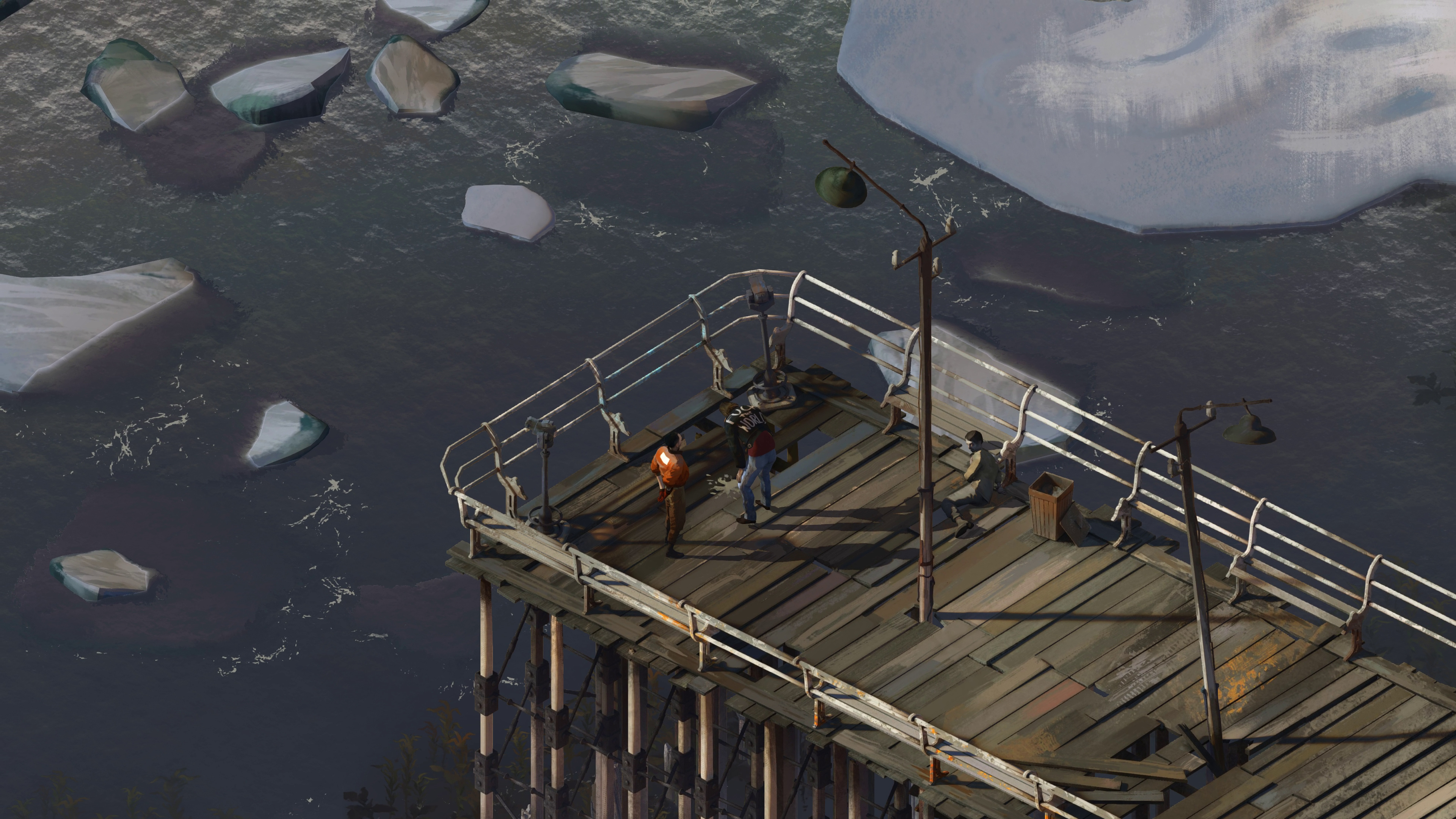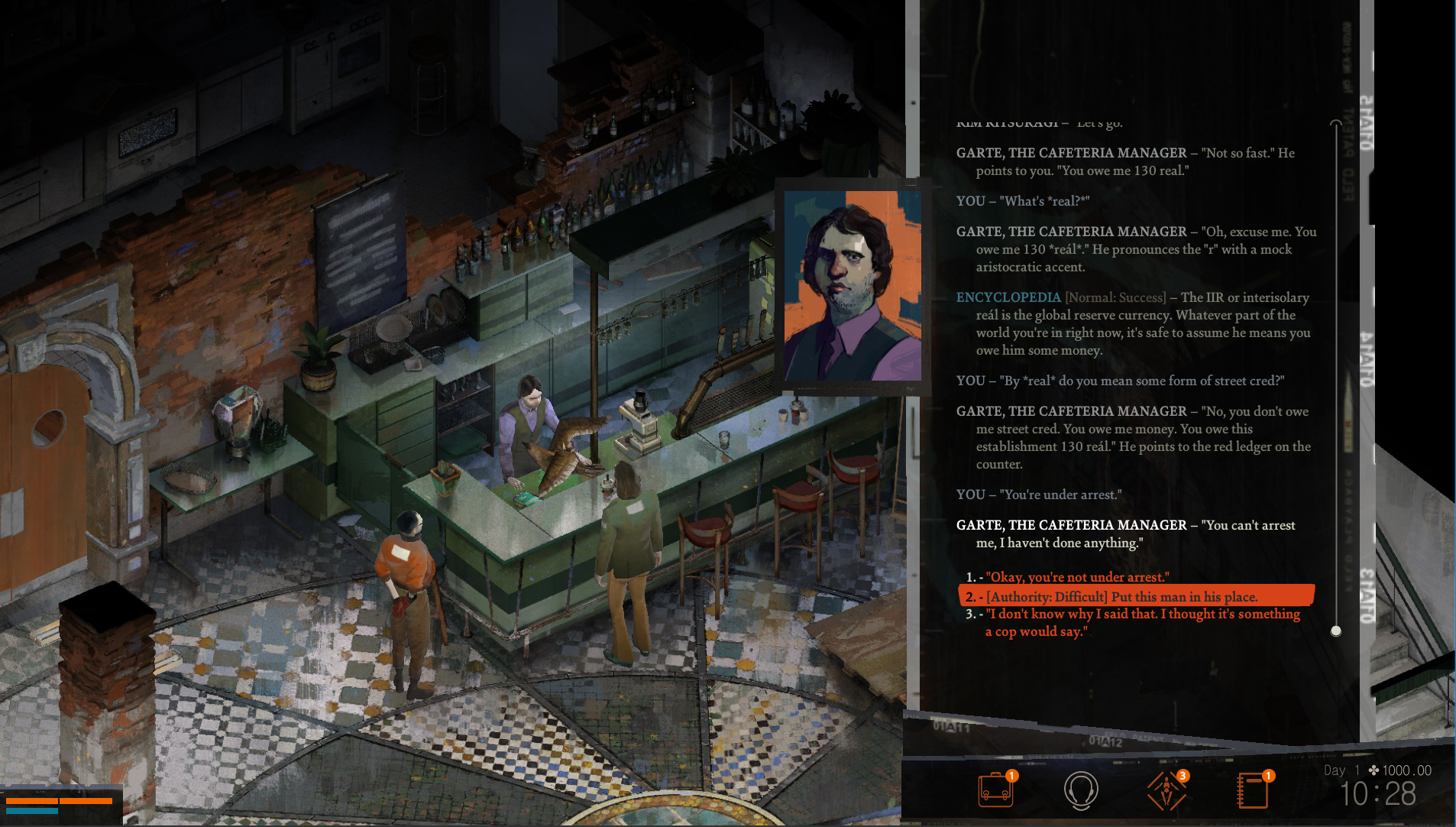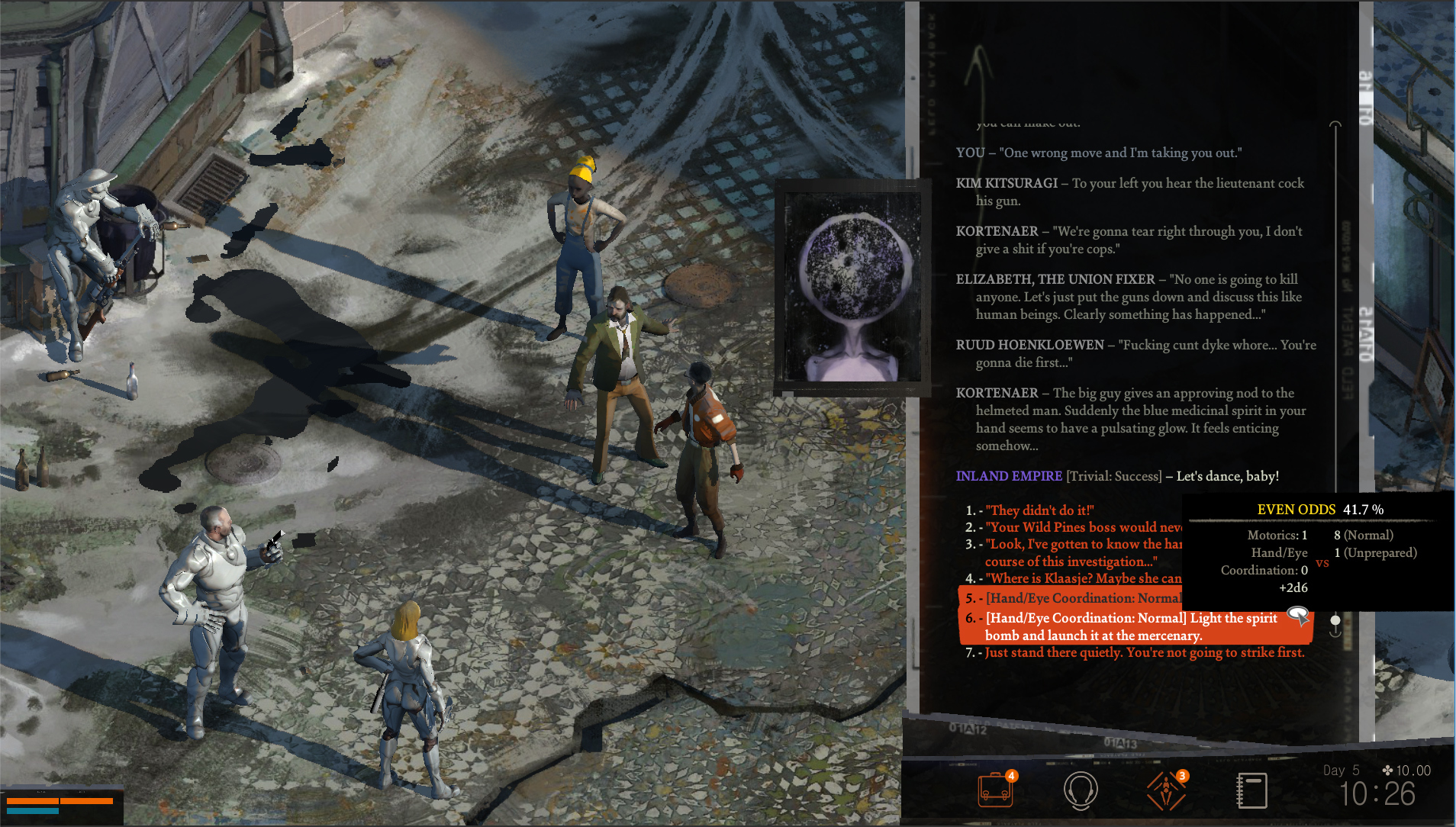
Oct 22, 2019
Disco Elysium - The Final Cut - ZAUM_Dani
Now that Disco Elysium is out – and people seem to be diggin' it – let's talk about all the drugs you can do in it. Let's talk about Pyrholidon, The Lightning, Al Gul and the sumptuous Tabac herb. Think of this as a little designer-tutorial on how to get the best out of those bad boys. Or how to make due without them, because...
1. First, your detective doesn't have to do drugs. A straight edge run is a great way to play the game. (One favoured by our writers, for example). It makes the game more challenging and adds some extra role playing tension – in the form of temptation. After all, there is no temptation without abstinence.
2. Drugs kill. If you do go down that route, know this: drugs give flat bonuses to your main Stats. But they also damage your Health and Morale. Which can lead to heart attacks and giving up. This means you should at least aim to heal any damage immediately after taking a hit. Hands shaking from the Lightning? Smooth it over with some magnesium. Smoking got you groggy? Nosaphed will clean those sinuses!
3. Number one trick – drugs also raise the learning caps of your Skills. In Disco Elysium, your initial Stats decide how many points you can put in the Skills under them. Because drugs (temporarily) raise your main Stat, they also raise your learning caps. When the effect wears off, you get to keep the point you put into your Skill. (Fun fact: this started out as a bug, but we kept it because testers liked it.)
4. Most drugs have sub-types, or “brands”. (Cigarettes, for example, can be Astra or Tioumoutiri.) These are cosmetic. Just like in real life, brands do nothing. They're just random fetishism – speed is speed, nicotine is nicotine, wine doesn't kill you any less if it's expensive.
5. Drugs have charges. Electrochemistry gives you extra charges. The base amount of charges for all drugs is 3. If you have 4+ Electrochemistry at the time of first acquiring the drug, you get 4 charges instead; 7+ Electrochemistry gives you 5 charges.
6. You might wanna top up. One charge lasts 1 hour of in game time. Most big scenes take longer than that to complete. So if you blast your drug of choice before going in – in preparation, as you would a spell before combat – you'll run out half way through the ordeal. Amend this by further blasting in the thick of it! Bring that brewskie, that ciggy, or that anti-radiation drug to the lion's den by keeping it your held slot. Then keep an eye on the clock and take a preventive hit.
7. Containers with legal drugs (smokes and alcohol) are visible for all – while containers with illegal drugs (pyrholidon and speed) become visible only after first using the drug. There might be some surprises waiting in, say, Cindy's coal room. Or the fish market. But only for the initiated. If you're innocent you won't know what to look for.
8. There is one drug for each of the four main Stats in the game. You can use this to “fix” a weakness in your character build. Low Intellect detectives might find themselves smoking a lot, while low Psyche detectives have more to gain from doing Pyrholidon. Low Physiqe detectives are prone to sucking on a bottle. Even a low Motorics detective is stupid enough to try that jump when they're on the Lightning Rail.
Here is a summary on all the drugs in the game, where to find them and how they interact with your thoughts.
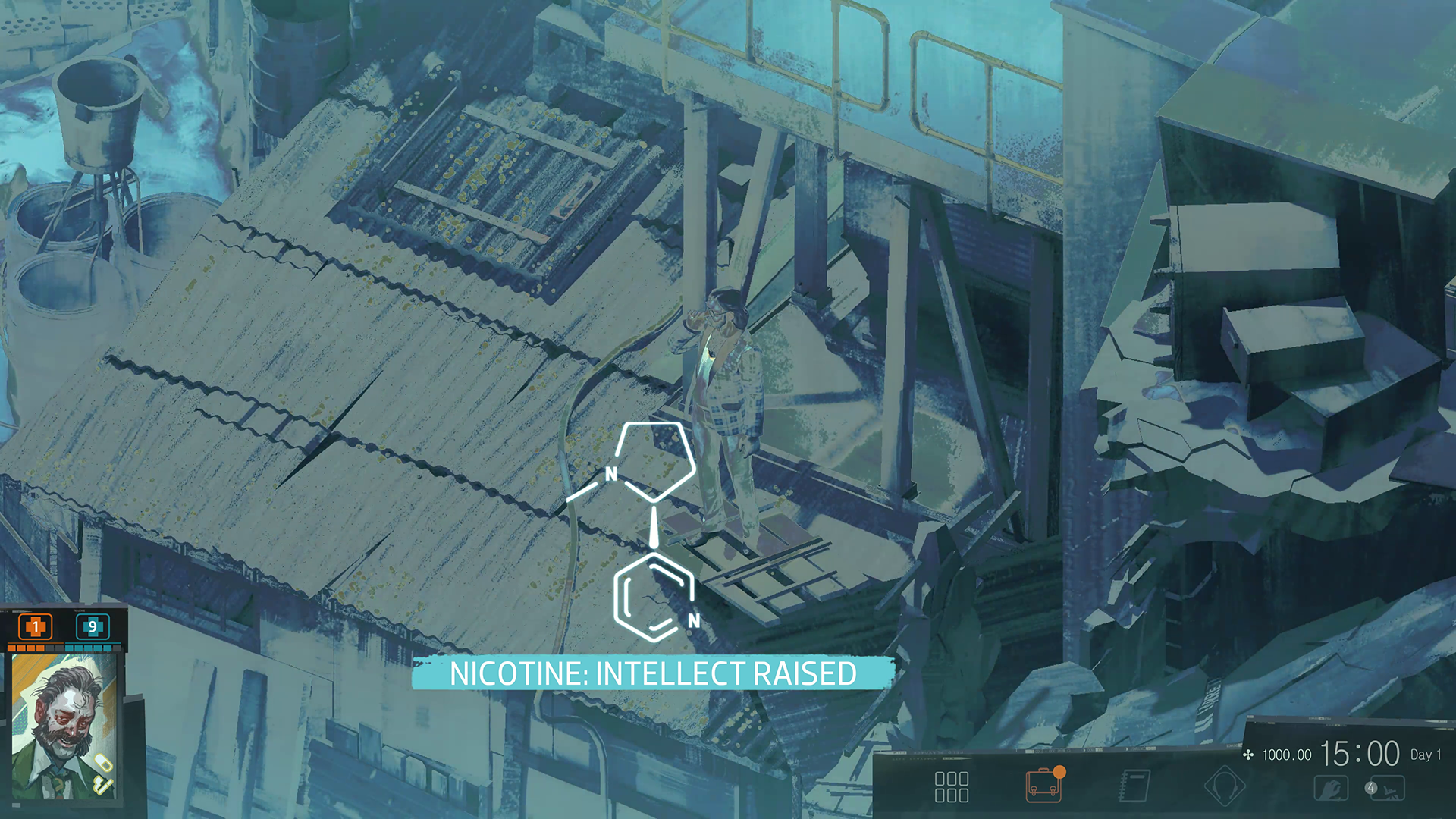
Bonus: +1 Intellect.
Damages: -1 Health (-1 Endurance)
Healed by: Nosaphed, Drouamine.
Get it from: Frittte, Rosemary, containers on the map
Brands: Astra, Tiomoutiri
Thoughts: “Boiadeiro” from passing Manana's Conceptualization check amplifies smokes.
Did you know: tracking the “Tioumoutiri” brand of smokes can lead to revelations in your main investigation.
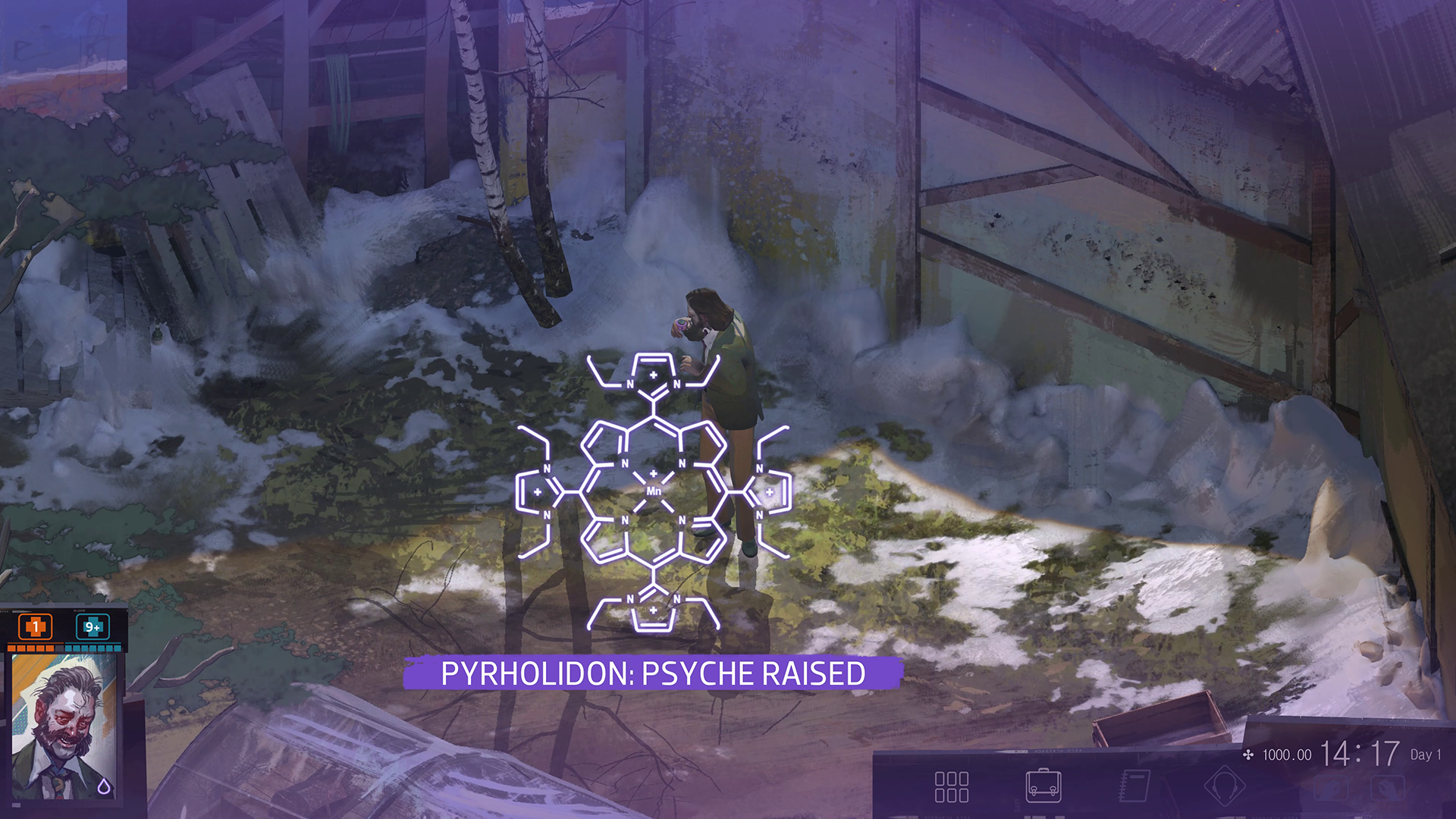
Bonus: +1 Psyche
Damages: -1 Health (-1 Endurance)
Healed by: Nosaphed, Drouamine
Get it from: Roy, after passing an Electrochemistry white check.
Brands: none
Thoughts. “Cop of the Apocalypse” doubles Pyrholidon’s effect.
Did you know: Pyrholidon is an anti-radiation drug. Using anti-radiation drugs recreationally was a beloved pastime of Soviet hippies and punk-rockers. (Tareen was one such drug.)
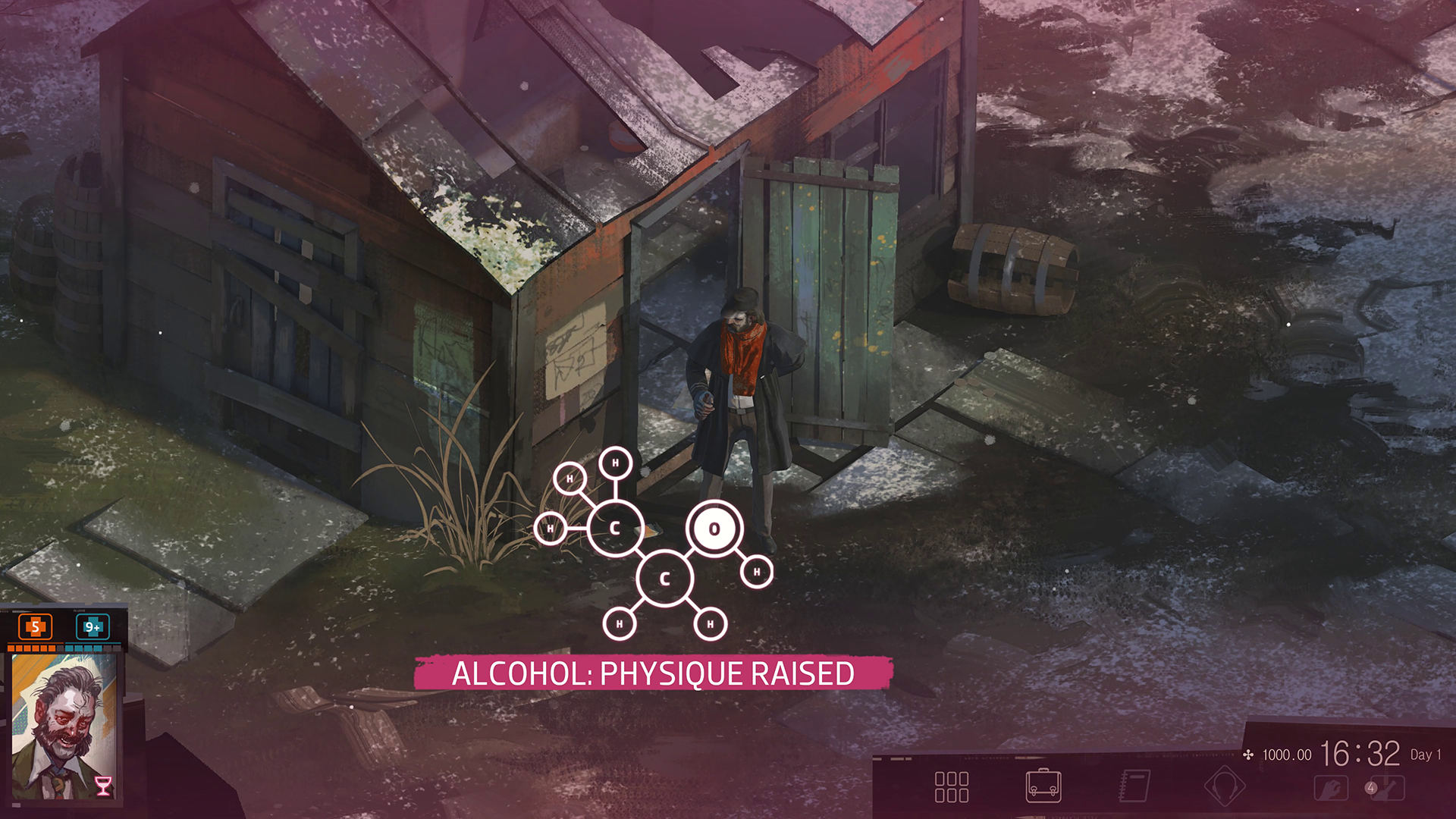
Bonus: +1 Physique
Damages: -1 Morale (-1 Volition)
Healed by: Magnesium, Hypnogamma
Get it from: Fritte, Rosemary, from containers on the map
Brands: Commodore Red, Potent Pilsner, Pale-Aged Vodka
Thoughts: “Revacholian Nationhood” unlocks the full heroic power of alcohol. “Waste Land of Reality” does... the opposite.
Did you know: Disco Elysium is produced by reformed alkies who quit “the Ghoul”; turns out it's not possible to get a 60+ hour RPG and a drink on simultaneously.
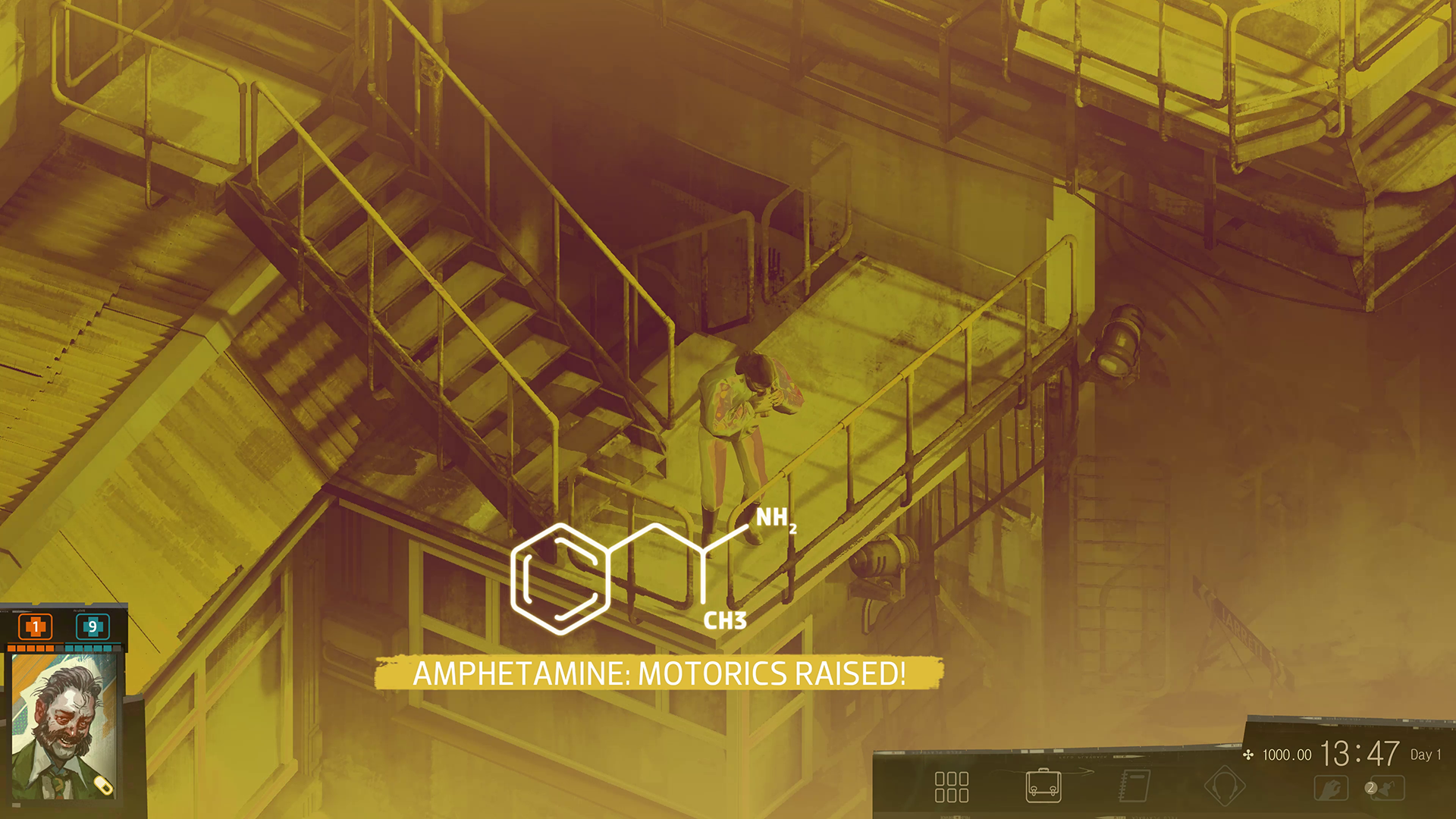
Bonus: +1 Motorics
Damages: -1 Morale (-1 Volition)
Healed by: Magnesium, Hypnogamma
Get it from: Klaasje's medicine cabinet, a quest after passing Cuno's Empathy check.
Brands: Preptide, trucker speed with a straw in it
Thoughts: “Lonesome Long Way Home” makes speed also give +1 Psyche too.
Did you know: The logos you see for drugs, including the one for amphetamine, are their actual molecules. (Or, in Pyrholidon's case, their fictitious molecules). We enrolled the help of a chemist to make sure they make sense. Thanks, chemist!
So that's it. Drugs are a multi-tool offering more flexibility and role playing options. But, on the other hand, they distort your personality and are completely incompatible with staying alive after you're 30 (trust us). And it's quite possible to make do without them. If there were a character sheet in Disco Elysium, the last field would be: Drug of Choice. The strongest DoC is the fifth, hidden drug we like to call Life and Your Mother's Love.
True bad asses get high on that :)
Until next time,
Roberto Kurvitzo, maker of RPG's; reformed Narcomaniac.
PS. Thank you for playing and sharing your stories in forums and media. It's you who make it all worthwhile.
1. First, your detective doesn't have to do drugs. A straight edge run is a great way to play the game. (One favoured by our writers, for example). It makes the game more challenging and adds some extra role playing tension – in the form of temptation. After all, there is no temptation without abstinence.
2. Drugs kill. If you do go down that route, know this: drugs give flat bonuses to your main Stats. But they also damage your Health and Morale. Which can lead to heart attacks and giving up. This means you should at least aim to heal any damage immediately after taking a hit. Hands shaking from the Lightning? Smooth it over with some magnesium. Smoking got you groggy? Nosaphed will clean those sinuses!
3. Number one trick – drugs also raise the learning caps of your Skills. In Disco Elysium, your initial Stats decide how many points you can put in the Skills under them. Because drugs (temporarily) raise your main Stat, they also raise your learning caps. When the effect wears off, you get to keep the point you put into your Skill. (Fun fact: this started out as a bug, but we kept it because testers liked it.)
4. Most drugs have sub-types, or “brands”. (Cigarettes, for example, can be Astra or Tioumoutiri.) These are cosmetic. Just like in real life, brands do nothing. They're just random fetishism – speed is speed, nicotine is nicotine, wine doesn't kill you any less if it's expensive.
5. Drugs have charges. Electrochemistry gives you extra charges. The base amount of charges for all drugs is 3. If you have 4+ Electrochemistry at the time of first acquiring the drug, you get 4 charges instead; 7+ Electrochemistry gives you 5 charges.
6. You might wanna top up. One charge lasts 1 hour of in game time. Most big scenes take longer than that to complete. So if you blast your drug of choice before going in – in preparation, as you would a spell before combat – you'll run out half way through the ordeal. Amend this by further blasting in the thick of it! Bring that brewskie, that ciggy, or that anti-radiation drug to the lion's den by keeping it your held slot. Then keep an eye on the clock and take a preventive hit.
7. Containers with legal drugs (smokes and alcohol) are visible for all – while containers with illegal drugs (pyrholidon and speed) become visible only after first using the drug. There might be some surprises waiting in, say, Cindy's coal room. Or the fish market. But only for the initiated. If you're innocent you won't know what to look for.
8. There is one drug for each of the four main Stats in the game. You can use this to “fix” a weakness in your character build. Low Intellect detectives might find themselves smoking a lot, while low Psyche detectives have more to gain from doing Pyrholidon. Low Physiqe detectives are prone to sucking on a bottle. Even a low Motorics detective is stupid enough to try that jump when they're on the Lightning Rail.
Here is a summary on all the drugs in the game, where to find them and how they interact with your thoughts.
SMOKES

Bonus: +1 Intellect.
Damages: -1 Health (-1 Endurance)
Healed by: Nosaphed, Drouamine.
Get it from: Frittte, Rosemary, containers on the map
Brands: Astra, Tiomoutiri
Thoughts: “Boiadeiro” from passing Manana's Conceptualization check amplifies smokes.
Did you know: tracking the “Tioumoutiri” brand of smokes can lead to revelations in your main investigation.
PYRHOLIDON

Bonus: +1 Psyche
Damages: -1 Health (-1 Endurance)
Healed by: Nosaphed, Drouamine
Get it from: Roy, after passing an Electrochemistry white check.
Brands: none
Thoughts. “Cop of the Apocalypse” doubles Pyrholidon’s effect.
Did you know: Pyrholidon is an anti-radiation drug. Using anti-radiation drugs recreationally was a beloved pastime of Soviet hippies and punk-rockers. (Tareen was one such drug.)
ALCOHOL

Bonus: +1 Physique
Damages: -1 Morale (-1 Volition)
Healed by: Magnesium, Hypnogamma
Get it from: Fritte, Rosemary, from containers on the map
Brands: Commodore Red, Potent Pilsner, Pale-Aged Vodka
Thoughts: “Revacholian Nationhood” unlocks the full heroic power of alcohol. “Waste Land of Reality” does... the opposite.
Did you know: Disco Elysium is produced by reformed alkies who quit “the Ghoul”; turns out it's not possible to get a 60+ hour RPG and a drink on simultaneously.
SPEED

Bonus: +1 Motorics
Damages: -1 Morale (-1 Volition)
Healed by: Magnesium, Hypnogamma
Get it from: Klaasje's medicine cabinet, a quest after passing Cuno's Empathy check.
Brands: Preptide, trucker speed with a straw in it
Thoughts: “Lonesome Long Way Home” makes speed also give +1 Psyche too.
Did you know: The logos you see for drugs, including the one for amphetamine, are their actual molecules. (Or, in Pyrholidon's case, their fictitious molecules). We enrolled the help of a chemist to make sure they make sense. Thanks, chemist!
So that's it. Drugs are a multi-tool offering more flexibility and role playing options. But, on the other hand, they distort your personality and are completely incompatible with staying alive after you're 30 (trust us). And it's quite possible to make do without them. If there were a character sheet in Disco Elysium, the last field would be: Drug of Choice. The strongest DoC is the fifth, hidden drug we like to call Life and Your Mother's Love.
True bad asses get high on that :)
Until next time,
Roberto Kurvitzo, maker of RPG's; reformed Narcomaniac.
PS. Thank you for playing and sharing your stories in forums and media. It's you who make it all worthwhile.





